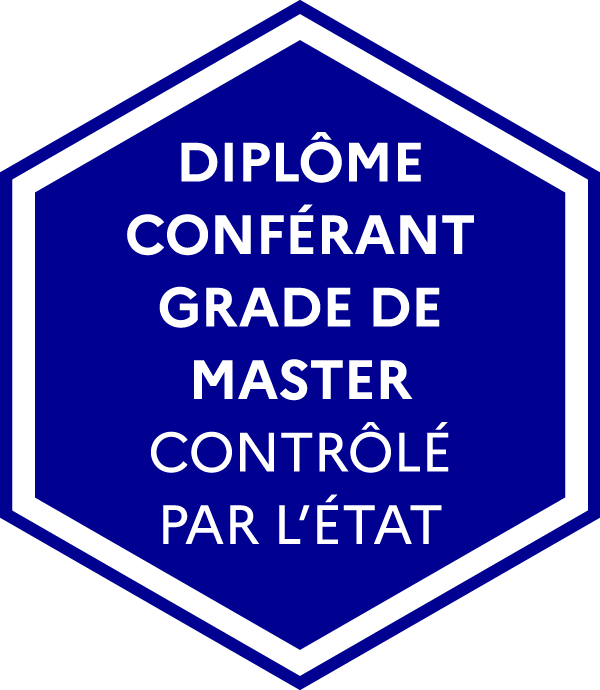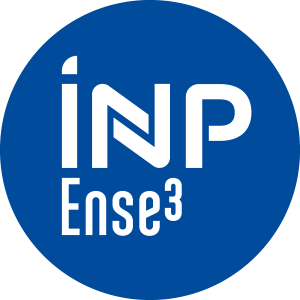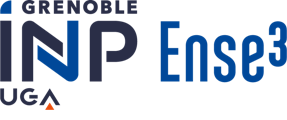Number of hours
- Lectures 21.0
- Projects -
- Tutorials 19.0
- Internship -
- Laboratory works 20.0
ECTS
ECTS 5.0
Goal(s)
Keywords: electromechanical and energy conversion, electric machine, distributed winding, generator, induction machine, synchronous machine control.
Objectives: this course aims to give an advanced knowledge of alternating electrical machines starting from the principles of electromechanical conversion to the control of synchronous machines through aspects of design and sizing. Time model in synchronous balanced steady state and Park model for the synchronous machine are established. This course provides knowledge necessary for the selection and control of a synchronous machine and its associated converter. A short technical project on a mass production stepping motor and laboratory works bring more practical aspects.
Pascal TIXADOR
Content(s)
Content
Electromechanical conversion, fundamentals of electric machines
• Electrostatic and electromagnetic conversions
• Magnetic circuit
• Structures and electromagnetic conversion topologies
• Electromagnetic torque from the magnetic energy and co-energy
• Torque by interaction between two magnetic flux densities
• Orders of magnitude and recent developments about electrical machines
Alternative machine windings
• Winding producing sinusoidal field, winding factor (distribution, short pitching and inclination)
• Rotating fields including harmonics
• Self and mutual inductances
Methods to study electric machines
• Time representation, expressions of power and torque
• Rotating vectors
• Overview of transformation: symmetrical and dqo components
Synchronous machines
• Full description (armature, field winding, dampers…)
• Equation for machines with round and salient poles rotor
• Phasor diagrams under balanced steady state operation, operation connected to the grid (infinite bus)
• Element of sizing
• Motor operation connected to the network
• Alternator types and orders of magnitude
• Transformation of Park (dqo transformation)
• Introduction to transient and unbalanced operations
Induction/Asynchronous machines
• Description (armature winding, squirrel cage, wound rotor)
• Equation for wound rotor induction motor supplied by voltage
• Introduction to the equations of a cage rotor
• Torque of an induction machine
• Equivalent circuit in steady state operation, phasor diagram
• Characteristics (torque (speed), power factor, efficiency ...)
• Introduction to the variable speed machine, double fed power (DFIG)
• Single-phase induction machine
Control of synchronous machines (speed and torque)
• Rotating vector modelling of synchronous machines
• Vector control
• Power converter/inverter machine Association (PWM)
Short project about stepper motor (8 hors)
Industrial electric equipment, check the sizing from manufacturers documents: stress analysis, taking into account standards, lifetime, overall cost (investment and running costs), depreciation.
Laboratory work (16 hours)
Measurement of induction machine parameters.
Synchronous machine: study of the armature field (winding factors), winding construction.
Study of the association power converter and synchronous machine.
Synchronous machine coupling on the grid, power exchanges.
Bibliography, Textbook
“Conception dimensionnement et réalisation d'un actionneur”, P. Tixador, Ense3 document.
“Générateurs et moteurs sur réseaux industriels”, P. Tixador, Ense3 document.
“Electric machinery and power system - Fundamentals”, S. J. Chapman, Mc Graw Hill, 2002, ISBN 0-07-122620-6.
“Entraînements électriques 1”, J. Fandino, R. Perret, E. Rullière, P. Tixador, Lavoisier, 2006, ISBN 2-7462-1305-2.
“Entraînements électriques 2”, R. Perret, A. Foggia, E. Rullière, P. Tixador, Lavoisier, 2007, ISBN 978-2-7462-1557-3.
“Electrodynamique appliquée”, B. Nogarede, Editions Dunod, Paris, 2005, ISBN 2 10 007314 1.
course « Electric power system » first year.
Session 1: Written Exam (2.5 ECTS) and Continuous evaluation (2.5 ECTS)
Session 2: second written exam, continuous evaluation kept
Continuous evaluation (2.5 ECTS) : 1.25 ECTS for practical works and 1.25 for step motor project
CC 50% + CT 50%
The course exists in the following branches:
- Curriculum - Master's Degree in Engineering IEE - Semester 8
Course ID : 4EUS4CME
Course language(s): 
You can find this course among all other courses.
French State controlled diploma conferring a Master's degree




